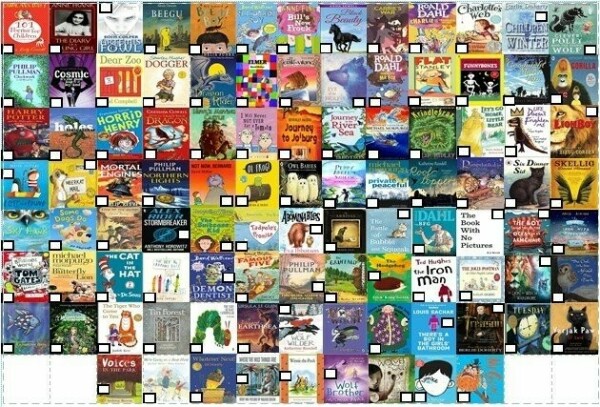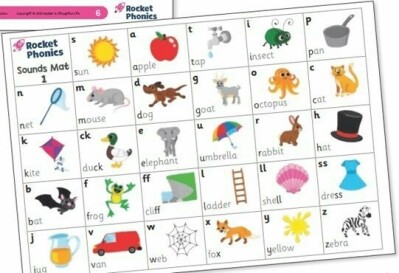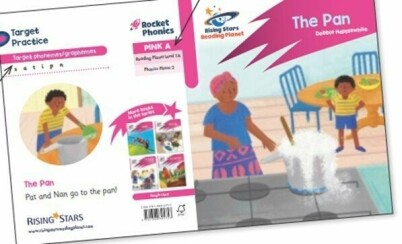Reading at Pye Bank
How is Reading Taught at Pye Bank?
Intent
At Pye Bank, we value reading as a key life skill, and we are dedicated to ensuring that our children are confident, enthusiastic and reflective readers so that all children, other than those who are cognitively unable, will leave Pye Bank working at or above age related expectations. At the centre of our teaching of reading is a recognition of the importance of language development and the goal that every child will develop a love of literature. To do this we take the following approach.


Implementation
Our School Leadership Prioritises Reading
The Headteacher, along with other leaders, prioritise reading at Pye Bank. The Headteacher meets regularly with the Early Reading Lead and English Lead, to discuss priorities in training, analyse data and look at ways forward. They often visit phonics lessons to check consistency across school. Early reading has been prioritised in Foundation Stage, Key Stage 1 and Key Stage 2, ensuring all children up to Year 2 receive high quality teaching and children in Key Stage 2, who did not crack the phonics code in Key Stage 1 or are new to English receive focused phonics teaching. The Headteacher gives the Reading Leaders and staff the time and opportunity for training.
Love of Reading is Promoted
The love of reading is promoted widely across school. Staff are passionate about reading, which inspires children. Core texts are read daily to children by the teacher. This gives the teacher a chance to emphasise their story voice and illustrate their excitement at new stories. Reading corners have been developed to promote a love of reading. They include books that are age appropriate recommended reads, books that we love which include books children have read in previous year groups and books linked to the curriculum. In school, we have the Pye Bank 100 reads that have been identified as quality texts that children should have read by the time that they leave Pye Bank School. These are available from the library and some are used in lessons across the curriculum. The school library is well stocked and books are organised and presented in a way which supports choice and the skills to select an appropriate book. The children sign books out electronically to give them a real 'library' experience which is important for many children whose families do not access local libraries. The library encourages children to take the books home, therefore improving their vocabulary, fluency and excitement around reading. At the beginning of the year parents are provided with a parent pack which includes ideas on how to support children at home with reading. Follow up workshops are held throughout the year to assist parents throughout school in supporting children’s reading at home.
Here are the books on our Pye Bank 100 reads list:

Content and Sequence Supports Progress
At Pye Bank, we use the Rocket Phonics Validated programme to lead our Phonics and reading provision. At Pye Bank, staff are highly skilled and trained to teach phonics and reading. The curriculum has been carefully sequenced to build the substantive and disciplinary knowledge that children need to be successful readers. There is a strong focus on knowing and remembering more.
Whole School Reading Provision Overview:
An overview of our reading approach can be found below:
Phonics and Reading Long Term Plans
Reading and Phonics Long Term Plans for each year group can be found by:
Phonics from the Beginning of Reception
An Early Sounds programme is taught for any child who enters Foundation Stage One (FS1.) Throughout their time in FS1 children will take part in lessons that are focussed on the development of listening skills and tuning into sounds. The Rocket Phonics scheme is taught from the very beginning of Foundation Stage 2 (FS2.) We believe that a strong start in Reception has a big impact on children’s progress and confidence in reading. By the end of the Foundation Stage, we want children to be able to read all of the identified sounds on our long term plan. Children are identified from the beginning if they are falling behind.
Phonically Decodable Books
As children in FS2 begin Rocket Phonics, children are sent home with a sound mat to practise their sounds and focus phonemes are posted on Dojo weekly to inform parents. Following this, children will be sent home with perfectly matched phonically decodable books once they are secure with their understanding of these sounds. These books will only include and consolidate phonemes that the children have been taught. This continues, until children have moved securely off the programme. As well as a phonically, decodable book, children will take a library book home with them. This is to encourage parents to read to their children and develop their vocabulary. Phonically decodable books are changed weekly, so children have time to practise their phonics sounds, as well as building their fluency. Phonically decodable books are used in lessons throughout the week and this supports children in becoming fluent.
Here is an example of the sounds mats and books that children are using during phonics lessons.


Phonics and Early Reading:
To see our full approach as to how we teach phonics and early reading see below:
Early reading begins with phonics.
This is taught through daily 30 minute phonics sessions using Rocket Phonics in Foundation Stage, Year 1 and the first half term of Y2.
During phonics lessons children have the opportunity to:
- Revisit and review previous phonics learning
- Learn new phonemes and high frequency words.
- Use and apply these in decoding and encoding.
This develops confidence and a love of reading. The sessions are engaging but challenging which ensures that the children move through the stages at an appropriate pace.
Alongside our phonics lessons, whole class reading, small group reading and 1:1 reading are used to develop children’s range of reading skills and reinforce what has been taught during discrete phonics lessons. As outlined above, whole class reading sessions using phonically decodable books take place daily across KS 1, with books being precisely matched to the children’s phonics stage.
Pupils Falling Behind Catch Up Quickly
Children who are falling behind are quickly identified by classroom staff with support from the Reading Leads. Diagnostic assessment forms an important part of the teaching process to help ensure that children stay on track and do not fall behind. As a minimum, teachers carry out a full diagnostic assessment for each child at the end of each stage (half term). The assessments cover the content that has been taught during that stage. This assessment covers a variety of areas:
- Assessment of knowledge of the letter sound correspondences
- Skills of blending for reading
- Skills of segmenting for spelling and the ability to read and spell common exception words.
Additionally, ongoing, formative assessment takes place daily in sessions and this informs teaching on a daily basis to ensure children keep up with sessions. If a child is identified as falling behind, the assessment is used to plan an appropriate intervention that follows the same sequence as daily phonics lessons and children will have same day flash card intervention. Parents will also be signposted to video lessons on the virtual school to support their children at home. By following our steady pace, with regular monitoring, children are able to keep up rather than catch up with the demands of the English alphabetic code. This is very evident in Key Stage 2 where the number of children requiring phonics and early reading support has reduced significantly
Please CLICK HERE for our Phonics Virtual Lessons
Staff are Early Reading Experts
All staff at Pye Bank CE Primary School, from FS1 to KS2, have been trained and involved in CPD linked to Rocket Phonics. CPD takes the form of staff having the opportunity to observe the English Lead and Early Reading Lead teach, informal discussions, coaching conversations with the school’s English Teaching and Learning Coach and staff meetings. The English Lead and the Early Reading Leader attend termly English Hubs and Phonics Hubs meeting to remain aware of current updates which is then shared with staff.
BUILDING ON...
Y2 and KS2 Reading Curriculum
In Years 2-6, children take part in reading zone lessons. Our reading zone lessons consist of book study lessons and Cracking Comprehension lessons. The purpose of these lessons is to ensure that our children improve their word reading skills and fluency, develop a deeper love of literature across a range of genres, authors and styles and leave Year 6 with the necessary reading and comprehension skills to access the secondary curriculum. Each child is heard reading aloud at least weekly during Book Study and Cracking Comprehension lessons and this is identified explicitly on teacher’s planning.
Book Study:
Children take part in creative book study lessons. During these lessons, children are exposed to a class text which is a high-quality, age-appropriate book often taken from our Pye Bank 100 reads (a list of a wide range of texts carefully chosen by the school’s teachers). There are two purposes to these lessons. The first being to ensure that children become motivated and inspired readers by being exposed to the best literature available. Children have the opportunity to explore, investigate and ask questions about other lives, worlds and perspectives in their reading through the four stage process that each lesson follows: clarify/review, predict, read/question/discuss and respond. To ensure that children study the text in an appropriate depth, children are taught the skills of reading comprehension (as outlined in the National Curriculum) through our reading superheroes which link to the 8 content-domains. The second purpose of these lessons is to ensure that every child develops the skills needed to be fluent and automatic readers who have a good understanding of what they have read. In every session, children have the opportunity to listen to an adult read a part of a text aloud so that children have a model for their own reading. Also, in every session, children have the opportunity to read and respond through a range of activities, linked to the reading superheroes, so that they can demonstrate their understanding of the text. The way in which they respond to the text will be one which is creative and one which allows children to engage deeply with the text.
Cracking Comprehension:
Alongside our reading zone lessons, we use cracking comprehension to improve and develop the skills that children need to have good comprehension through the use of age appropriate texts. At Pye Bank, we recognise that the success in reading has a direct effect upon progress in all other areas of the curriculum and it is therefore crucial that children are exposed to the techniques needed to successfully answer reading comprehension questions. The introduce, model, apply and check process used in the cracking comprehension scheme enables us to teach this well. Teachers can chose when they would like to use cracking comprehension with some teachers choosing to teach reading zone for a half term and cracking comprehension for the other half term whilst others chose to alternate weekly between cracking comprehension and reading zone lessons. There is, however, a roughly equal split between cracking comprehension lessons and book study lessons.
Cracking comprehension lessons are taught in pairs and follow this structure:
Click the link below to find out How we listen to children read
In each reading lesson, a particular reading behaviour is identified and this is what staff are looking in particular for children to be doing during that session. Find out more about this by clicking here: KS1 reading behaviours KS2 reading behaviours
Vocabulary:
The teaching of vocabulary underpins all of our reading teaching at Pye Bank and we make strong links between our reading lessons and vocabulary lessons. Key words are taken from our Cracking Comprehension and reading zone texts and these are taught explicitly in five lessons fortnightly. We believe that vocabulary knowledge is critical to reading comprehension and it is a vital part of the reading jigsaw.
Home Reading:
All children take home an age appropriate reading book (a precisely matched phonetically decodable book or a recommended read) and are expected to read at home every evening, bringing their book bags, reading diary and reading books to school daily. In FS, KS1 + any KS2 child who is still a phonics learner take home their Rocket Phonics reader and will keep this book for the whole week. Every day a teacher/TA checks that pupils have their reading book and reading record in school and will give the child a tally mark on the reading diary checklist chart. Children who read at home often are recognised in class with stickers, ambition tokens and Gold Awards. Children in KS2 are encouraged to keep their reading books for at least 2 days before changing them to continue to support reading fluency. Adults in school monitor this and support them to make appropriate choices.
Reading for Pleasure
Research shows that reading for pleasure has a positive impact on children’s attainment in reading assessments. Children who read for pleasure have enhanced levels of text comprehension, an increased knowledge of grammar and show improvement in their writing. They also have more positive attitudes towards reading than peers. The advantages of reading for pleasure go beyond academic achievement:
‘Other benefits include an increased breadth of vocabulary, pleasure in reading in later life, a better understanding of other cultures, better general knowledge and even ‘a greater insight into human nature’.
Reading for Pleasure: A research overview, National Literacy Trust, 2006
At Pye Bank CE Primary School we promote reading for pleasure. We do this in the following ways:
Every teacher is an advocate for reading and often recommend their own favourite books to children.
Reading and books are at the centre of the curriculum.
Every half term, each class studies at least one book as part of their English Lessons. This is taken from the Pye Bank Progression of texts, so is an age-appropriate text that is rich in vocabulary and content.
We plan time in for all children to read independently, read aloud and be read to during the school day through daily story time.
We arrange visits from authors and poets.
We celebrate World Book Day every year with new exciting themes each year.
We pair Y6 and Y2 children up with ‘buddies’, which gives them the opportunity to read with other children and share their love of reading.
